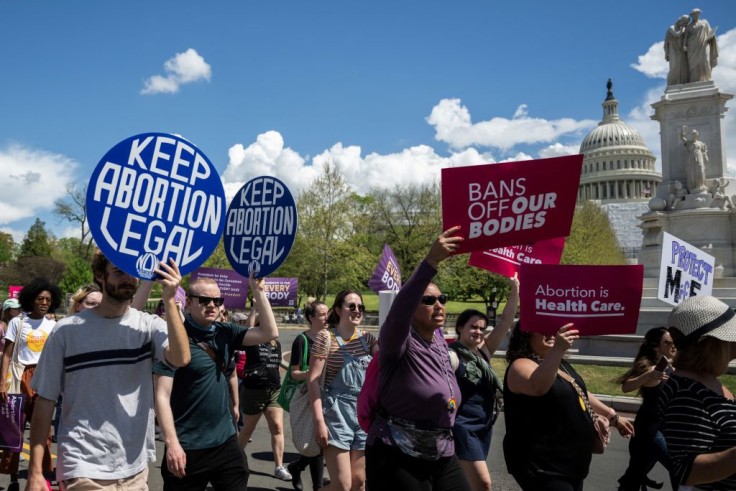
The Republican-controlled legislatures of South Carolina and Nebraska faced setbacks in their efforts to ban abortion, as two proposed bills failed to pass.
These conservative states have been advocating for stricter abortion laws, but the outcome has been a victory for supporters of abortion rights, who can continue to access the procedure without significant restrictions.
Abortion Ban Fails in South Carolina and Nebraska
Women's reproductive freedom in South Carolina and Nebraska will be continuously upheld.
According to ABC News, on Thursday, two bills seeking to impose severe restrictions on abortion in South Carolina and Nebraska failed to pass, marking victories for supporters of abortion rights.
The proposed legislation in South Carolina sought to ban most abortions in the state and had already been passed by the House, but it failed to clear the Senate with a narrow vote of 22-21.
The bill would have made abortions illegal except in cases of rape, incest, or if the life of the mother was at risk. The failure of the bill means that abortions remain legal in the state until 22 weeks of pregnancy.
Interestingly, the senators who played a key role in blocking the bill were all women, including three Republicans. While some of them identified as "pro-life," they argued that the proposed legislation lacked empathy and did not reflect the reality of women's lives.
State Senator Penry Gustafson, for instance, expressed her support for the pro-life cause but noted that the drafted bill lacks graciousness and empathy.
Similarly, Republican Senator Sandy Senn criticized the legislation, comparing it to the dystopian book "The Handmaid's Tale," and stated that abortion laws had always been about control.
In Nebraska, as reported by Axios, a bill seeking to ban abortions after six weeks of pregnancy was also rejected, falling one vote short of the required 33 votes to break a filibuster.
Governor Jim Pillen, a Republican who had supported the bill, expressed profound disappointment at the outcome and criticized the senators who failed to vote on the issue.
The failure of the Nebraska bill means that abortions remain legal in the state until 22 weeks of pregnancy.
The outcome of both bills represents a significant victory for advocates of abortion rights, who have been fighting against a wave of restrictive abortion laws passed in recent years.
The Supreme Court's decision last year to uphold a restrictive abortion law in Texas has emboldened conservative lawmakers in several states to push for similar legislation, but Thursday's results show that there is still strong opposition to such measures.
Reproductive Freedom Prevails
According to The New York Times, as abortion access becomes increasingly restricted in neighboring southern states, South Carolina has seen a rise in the number of women traveling there to obtain abortions.
The proposed ban in South Carolina would have prohibited abortion at all stages of pregnancy, except in cases of rape and incest before 12 weeks.
This ban would have placed South Carolina among a growing list of Republican-led states that have implemented strict abortion laws, with 14 states having already enacted near-total bans on abortions.
While Georgia and Florida have also implemented strict abortion laws, with a ban after six weeks of pregnancy, Florida's law is currently on hold pending a legal challenge.
While South Carolina's and Nebraska's recent failed attempts to pass restrictive abortion laws are certainly encouraging news for abortion rights advocates, the fight for reproductive justice is far from over.
It remains to be seen how these ongoing battles will play out in the months and years to come.